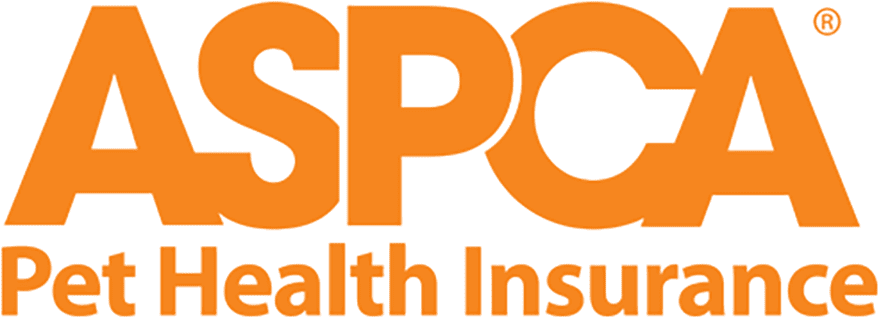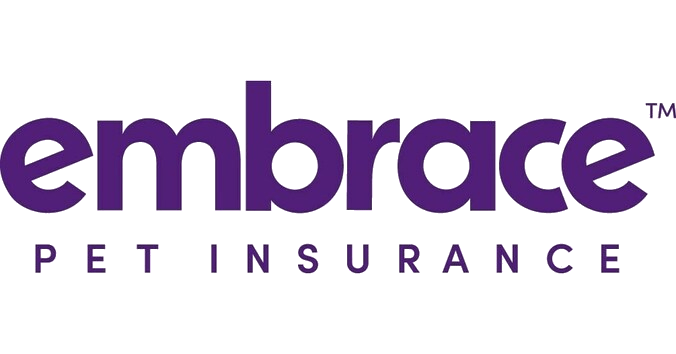Most dogs and cats have some form of dental disease by age 3, studies show. Left untreated, these diseases can lead to tooth loss, infections and even heart problems. That’s why it’s important to consider pet insurance that covers dental issues.
To find the best pet dental insurance plans, we looked for highly rated companies that cover a wide range of tooth problems in their standard plans. (Some companies don’t cover dental illnesses, while others charge extra for the coverage.) We also chose insurers with optional wellness care plans. These can help you prevent dental issues through routine teeth cleaning for your pet.
ASPCA
Dog
$39 /month
Cat
$19 /month
ASPCA offers generous coverage and multiple plan options, including an accident-only policy.
Policy details
Annual max coverage
Unlimited
Reimbursement rates
70%, 80%, 90%
Deductibles
$100, $250, $500
Policy highlight
Broader coverage than most other plans.
Dental accidents and illnesses: ASPCA's Complete Coverage plan can treat gingivitis, periodontal disease and other dental illnesses. It can also pay to pull teeth injured in an accident or treat tooth abscesses and tumors. If your pet needs a dental cleaning to help resolve a dental disease, the plan can pay for that, too. But it won’t reimburse you for caps, implants, or other endodontic or orthodontic procedures.
Routine care: ASPCA’s optional preventive care packages can pay for routine dental cleanings. They also cover annual wellness exams to look for issues like periodontal disease.
» READ MORE: ASPCA pet insurance review
Embrace
Dog
$37 /month
Cat
$17 /month
Embrace has many ways to customize your plan, plus coverage for curable pre-existing conditions.
Policy details
Annual max coverage
Unlimited
Reimbursement rates
70%, 80%, 90%
Deductibles
$100 - $1,000
Policy highlight
Wellness plan is more flexible than most.
Dental accidents and illnesses: Embrace's plans cover dental conditions like broken teeth, gingivitis, stomatitis and periodontal disease. They also cover root canals and crowns, which is uncommon in the industry. However, Embrace offers only $1,000 of dental care per policy year, which may not be enough for more expensive procedures.
Routine care: Embrace offers a Wellness Rewards plan for an extra cost. Like many other wellness plans, it helps pay for routine dental care such as cleanings and checkups. However, it also covers unique extras like toothbrushes and toothpaste, dental chews, and teeth brushing by groomers.
» READ MORE: Embrace pet insurance review
MetLife
Dog
$38 /month
Cat
$18 /month
MetLife sells customizable plans for dogs, cats and even other animals in some states.
Policy details
Annual max coverage
Unlimited
Reimbursement rates
50% - 90%
Deductibles
$0 - $2,500
Policy highlight
No upper age restrictions for enrollment.
Dental accidents and illnesses: A MetLife plan can cover treatment for periodontal disease, including cleaning. MetLife also covers fractured teeth and other dental injuries. Unlike some other companies, MetLife can pay for endodontic and orthodontic procedures. But it won’t cover cosmetic issues.
Routine care: If you buy your MetLife wellness plan online, you can get $100 to $150 per year toward dental cleaning. Or you can call to get a plan that may pay more toward the procedure, subject to your annual deductible and coverage limit.
» READ MORE: MetLife pet insurance review
Pumpkin
Dog
$32 /month
Cat
$15 /month
Pumpkin offers a comprehensive accident and illness plan that covers dental illnesses and some pre-existing conditions.
Policy details
Annual max coverage
Unlimited
Reimbursement rates
80%, 90%
Deductibles
$100 - $1,000
Policy highlight
PumpkinNow service can reimburse you while you’re still at the vet.
Dental accidents and illnesses: Pumpkin’s plan covers tooth extractions due to periodontal disease or fractures, among other issues. It will also pay for cleanings if prescribed for a covered illness. Like many insurers, however, Pumpkin won’t cover aesthetic, endodontic or orthodontic procedures, including root canals.
Routine care: Pumpkin has two different types of wellness coverage. Preventive Essentials is an add-on to the company’s accident and illness policies, while Wellness Club is a standalone option. Of these, only Wellness Club Premium plans pay for routine dental cleaning — up to $150 per year.
» READ MORE: Pumpkin pet insurance review
Spot
Dog
$35 /month
Cat
$17 /month
Spot offers a wide range of coverage choices for pet owners but won’t pay your vet directly.
Policy details
Annual max coverage
Unlimited
Reimbursement rates
70%, 80%, 90%
Deductibles
$100 - $1,000
Policy highlight
Broad coverage, including microchip implantation.
Dental accidents and illnesses: Spot's plans can treat dental diseases and infections, and pay for tooth extractions. If your pet needs a cleaning to treat a covered illness, Spot can pay for that, too. But Spot doesn’t cover aesthetic, cosmetic, endodontic or orthodontic procedures such as root canals or crowns.
Routine care: Both of Spot’s optional preventive care plans, Gold and Platinum, can help pay for routine dental cleanings. Depending on which plan you choose, you can get $100 to $150 toward your vet bill.
» READ MORE: Spot pet insurance review
What does pet dental insurance cover?
Dental expenses generally fall under two types of pet insurance: accidents and illnesses, and routine care.
Dental accidents and illnesses
Standard pet insurance plans are designed to cover unexpected accidents or illnesses. Say your pet breaks a tooth or develops dental disease. An accident and illness plan may pay for tooth extractions, jaw fracture repairs or other treatment.
But dental disease coverage can vary widely among providers. Some insurers like Lemonade cover dental illnesses only if you purchase an optional add-on. Others, like AKC and Healthy Paws, exclude periodontal disease entirely.
Also, not all plans cover procedures like root canals. Read the fine print to understand exactly which dental treatments are included. Coverage may differ based on when you enrolled your pet, where you live and the specifics of your policy. If dental illness coverage is a priority for you, confirm the details before enrolling.
Routine dental care
Standard pet insurance policies generally don’t pay for routine dental care such as cleanings and checkups. To cover these, consider a wellness add-on. These plans can help manage costs for regular dental upkeep, preventing bigger problems down the line. However, not all pet insurance companies offer wellness coverage.
Wellness plans typically offer a set amount of money per year toward dental cleanings, such as $100 or $150. This allowance may not be enough to cover the entire cost of a cleaning.
Most policies have a waiting period before dental coverage for accidents and illnesses takes effect. Some plans may also have annual reimbursement limits for dental care.
» MORE: What does pet insurance cover?
Which pet dental issues aren’t covered?
Standard pet insurance policies generally won’t cover these dental treatments and procedures:
Routine teeth cleaning.
Cosmetic procedures like caps, crowns or orthodontic treatments.
Pre-existing dental diseases or injuries that were present before your policy's effective date.
Some companies may cover periodontal disease only if you meet certain conditions, such as getting your pet an annual dental exam.
Most accident and illness plans don’t pay for routine teeth cleanings. However, they might be covered if your vet prescribes a cleaning as a treatment for dental disease.
How much does pet dental care cost?
Caring for your furry friend’s teeth can get expensive. Getting one or more teeth extracted can cost upwards of $500, with complicated cases totaling $2,500 or more.
Meanwhile, a routine dental cleaning costs an average of $388 for dogs and $375 for cats, according to a 2025 survey from CareCredit.
Your own costs will vary based on where you live, the size and age of your pet, and the condition of your pet’s teeth.
» MORE: Is pet insurance worth the cost?
How to find pet insurance that covers dental problems
Each pet insurer covers dental care a little differently. Before you buy a policy, make sure you understand what is and isn’t covered. Many providers have sample policies available to read online. Here are a few questions to look into:
Does the plan cover dental illnesses, including periodontal disease?
Does the plan include treatment for all teeth, or just certain ones such as canines?
Is there an annual limit on dental coverage?
How long is the waiting period before dental coverage takes effect?
If you’re considering a wellness plan, how much of a benefit is available for routine dental cleanings?
Are there certain things you need to do to make sure your pet stays eligible for dental coverage, such as getting them an annual exam?
Choosing pet insurance with dental coverage, combined with home care such as tooth brushing, can help you keep your pet healthy for years to come.
Article sources
NerdWallet writers are subject matter authorities who use primary, trustworthy sources to inform their work, including peer-reviewed studies, government websites, academic research and interviews with industry experts. All content is fact-checked for accuracy, timeliness and relevance. You can learn more about NerdWallet's high standards for journalism by reading our editorial guidelines.
- 1.Cornell University College of Veterinary Medicine. Periodontal Disease. Accessed Jan 8, 2026.
- 2.CareCredit. How Much Does Cat or Dog Teeth Cleaning Cost?. Accessed Jan 8, 2026.
Pet insurance star rating methodology
NerdWallet’s pet insurance ratings reward companies for customer-first features and practices. Ratings are based on weighted averages of scores in several categories, including consumer experience, scope of coverage and the ability to customize your plan. We give higher ratings to companies that cover a wide range of medical treatments and that offer perks such as live chat support and direct vet pay. To calculate each insurer’s star rating, we adjusted the scores to a curved 5-point scale. See our full pet insurance methodology.
These ratings are a guide, but we encourage you to shop around and compare several insurance quotes to find the best rate for you. NerdWallet does not receive compensation for any reviews. Read our editorial guidelines.





